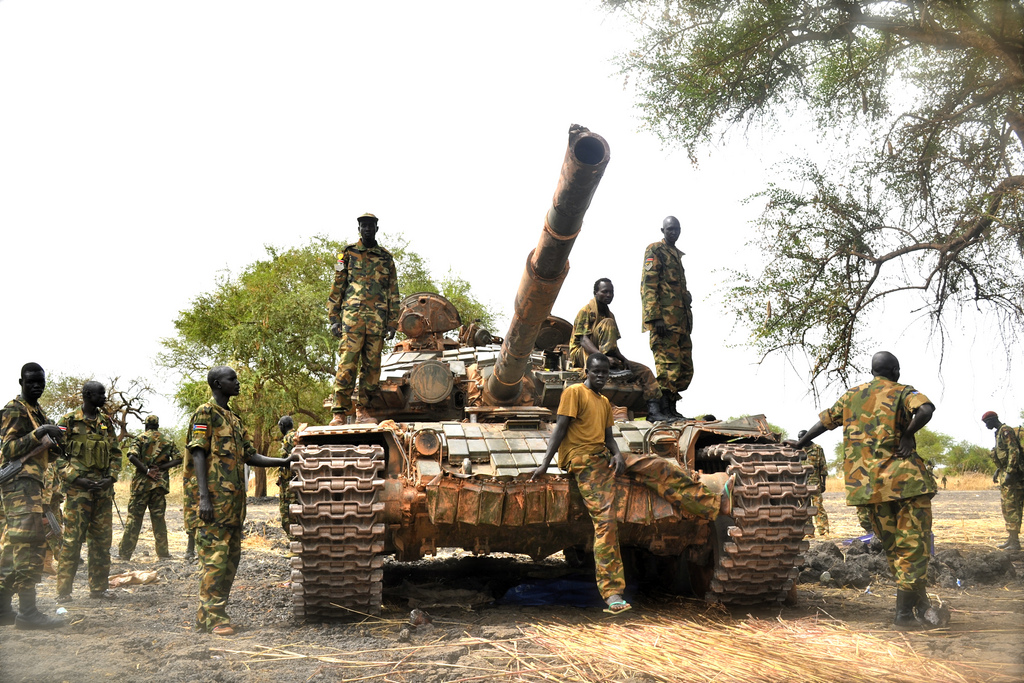
Over the last few months, conflict has ignited across the border between the two Sudans, with the potential to escalate even further. A new Enough Project report, “South Sudan and Sudan Back at War: The View from Juba” reflects on these last few months and evaluates the causes and implications of the deteriorating relationship between Sudan and South Sudan.
Amanda Hsiao, Enough Project Juba-based field researcher and the report’s author, examines the most recent developments between north and south at the negotiating table and on the frontline. Recent positive momentum at the negotiating table between Sudan and South Sudan has been undermined by military movements on the ground. The two countries have recently clashed over the oil-rich border region of Heglig. Meanwhile, Khartoum has been fighting southern-backed rebels in its border state of South Kordofan.
Despite the rise of hardline sentiments from leadership of both countries, the report affirms that negotiations remain the best means for the two parties to settle their differences.
Based on interviews she conducted in Juba, Hsiao determined:
South Sudan’s leaders appear open to continued talks and to the establishment of improved relations with Khartoum, especially in response to international pressure to do so. But there is a perceptible shift within the leadership in Juba toward disengagement with Sudan.
The report analyzes Juba’s recent motivations, political calculations, and military considerations. Hsiao captures several motivating factors influencing policymakers in Juba, such as the imperative of the newly independent South to assert its sovereignty vis-à-vis Sudan, the frustration on the part of many South Sudanese officials at negotiating with a volatile and unreliable regime in Khartoum, and the South’s fervent belief that the north-south negotiations favor Sudan.
Maintaining a positive global image is critically important to the leaders of South Sudan. Whether the international community is able to deliver a sustained cessation of hostilities, full withdrawal from disputed areas including Abyei on the part of Sudan, and a viable negotiation process, will factor largely into Juba's reading of how effective the world will be at mediating North-South issues going forward.
Furthermore, the paper asserts that a successful resolution of north-south issues cannot be achieved without a parallel process to achieve peace in South Kordofan and Blue Nile.
Moving forward, the report suggests the following must take place:
- A stronger negotiation facilitation model is necessary to rebuild Southern confidence in talks on outstanding post-independence issues.
- Bolstered diplomatic efforts by the international community in the form of sustained and coordinated efforts from a “Friends of Sudans” body.
- A push for a comprehensive agreement between Sudan and South Sudan that is paralleled by an accompanying Northern political process to holistically address the conflicts in Darfur, South Kordofan, and Blue Nile, as well as deal with the grievances of all marginalized Sudanese populations.
- A push for talks between the SPLM-N and Khartoum to help bolster the resolution of remaining North-South issues.
Photo: SPLA soldiers, Panakuac (Enough Project/Nenad Marinkovic)

